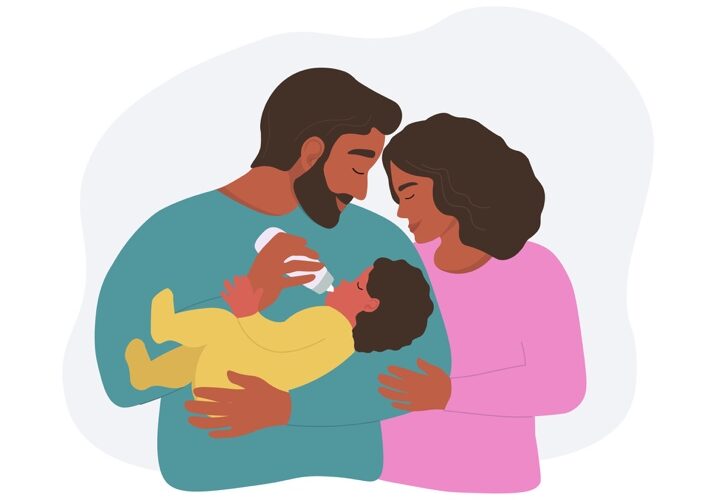Preparing your baby to transition into an early learning setting

Preparing your baby to begin their journey into early learning childcare can be an emotional and daunting journey, but it can also be an exciting one – to watch them embark into a different world that is full of fun, learning and growth. There are plenty of things that you can do to support your baby and their transition and we have put together some of our best tips!
Get organised early
If you are going back to work and placing your baby into care, being prepared is key. Plan to start your baby at care before you return to work, that way you are available for settling times, and can come back to collect your baby earlier in those first few days, if need be, without it disrupting your work commitments. Our Educators are well trained and have many tools in the tool kit for settling a young baby into their ECE setting, however for some children this will take place slowly as they discover their sense of belonging and form new attachments and build trust with new people outside of their main carers. Having a main carer to call on in the early days assists baby to settle in the long run.
Being organised for the things that will be different at care is equally important. Things like preparing your baby for a different feeding and sleeping routine which will make things so much easier on you, your baby and their early childhood Educator once they do transition to care. In the weeks leading into care if you are breastfeeding, trial and introduce your baby receiving some feeds from the bottle from other people. This could still be pumped breast milk. Unless you plan to drop by the ECE setting regularly to breastfeed, your baby needs to be able to take a feed from a bottle to ensure they are kept hydrated throughout their day of care. For some babies, this isn’t an automatically accepted thing. It takes time and practice, finding the right bottle and teat, and to learn a whole new way of feeding. If your baby is a “contact napper” or needs to be rocked to sleep, then introducing new sleep rituals and routines at home in preparation for baby being able to fall asleep at childcare is paramount. We will support your baby to go to sleep unaided while they are in our care, but with supervision as other children need to be supervised too and being confined to a couch having snugs with a gorgeous little contact napper, whilst is so lovely – is also not practical and won’t enable quality sleep/rest for your baby in an ECE setting. Having learnt the skills to go down to sleep unaided in a cot prior to care will make for a well-rested and happy baby ready to engage and learn. You can do things like play peaceful music or white noise (check out our very own peaceful baby playlist on Spotify here) to support self-settling sleepers. Having gentle and calming music on in the background will support a baby to fall asleep with less intervention from an adult.
Spend time building a relationship with your child’s early childhood Educator.
Your child is more likely to feel secure at childcare if they see that you have a good relationship with their Educator. If your child can see that you trust their Educator, your child is more likely to trust the Educator too. We can recommend having at least 2 weeks of visits prior to starting care. Start off with visits together, then build towards leaving your baby for just 30 minutes, then the next visit you might like to leave them for longer, before moving to a half day, then to their full hours. This enables trust to grow, and baby can understand that their Educator is there to support them, meet their needs and be responsive to the emotions they feel while they adjust to being at care. All of this is so much easier to achieve if you can begin your babies transition to care prior to the care actually needing to start.
Keeping those lines of communication open with your Educator throughout the process is key.
With implementing some of these recommendations early on, once they are settled – the benefits of being in a quality ECE service where reciprocal bonds are formed and individualised care and learning is provided you will watch them be able to continue to flourish and grow and you will be able to feel confident that they are easily happy and settled.